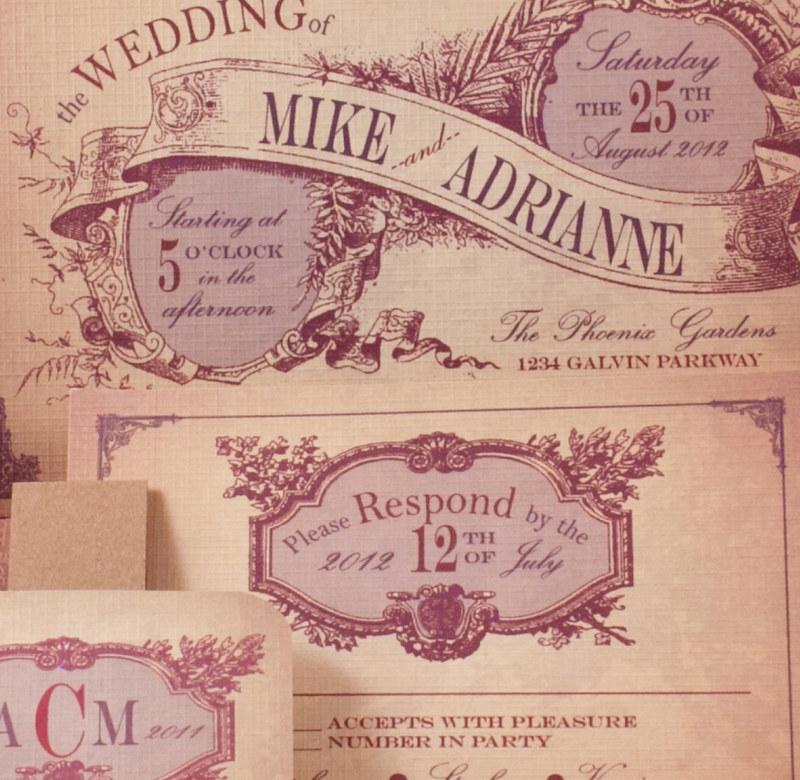Introduction: The Timeless Allure of Epiphone Vintage
In the world of musical instruments, few names resonate with the same rich history and craftsmanship as Epiphone. With roots tracing back to the late 19th century, Epiphone has evolved from a modest producer of banjos and guitars to a respected emblem of quality and innovation. Among its offerings, the Epiphone Vintage series stands out, celebrating the brand’s storied heritage while bringing the past into the present. This article delves into the enchanting universe of Epiphone Vintage, exploring its origins, the craftsmanship that sets it apart, and the enduring appeal it holds for musicians and collectors alike. Join us as we uncover what makes Epiphone Vintage not just a line of instruments, but a tribute to the art of music-making itself.
Exploring the Rich History of Epiphone Vintage Guitars
Epiphone’s illustrious legacy in the world of vintage guitars traces back to its founding in 1873, establishing a name synonymous with craftsmanship and innovation. Originally known for manufacturing quality archtop guitars, Epiphone quickly carved a niche in the music industry with its commitment to detail and artistic design. Key milestones include:
- 1928: The introduction of the now-iconic “Emperor” model, which set standards for jazz guitars.
- 1930s: The launch of the “Broadway” and “Zephyr” models, showcasing intricate craftsmanship.
- 1950s: The partnership with Gibson, pushing boundaries in design and production.
Throughout the decades, Epiphone guitars have not only stood the test of time but have also evolved to accommodate the changing tastes of musicians. With features like their famous “P-90” pickups and the use of high-quality woods, vintage models possess a unique sonic characteristic cherished by collectors and players alike. Notable models such as the “Casino” and the “Sheraton” have graced stages and recording studios, celebrated for their rich tones and versatile playability. Below is a glimpse into some of the most sought-after models in Epiphone’s vintage repertoire:
| Model | Years Produced | Notable Features |
|---|---|---|
| Casino | 1961-Present | Hollow body, P-90 pickups |
| Sheraton | 1959-Present | Double cutaway, elegant inlays |
| Emperor | 1935-Present | Big body, intricate scroll work |
Key Features That Define Epiphone Vintage Instruments
Epiphone vintage instruments are renowned for their timeless craftsmanship and exceptional sound quality. These guitars embody the spirit of classic rock and blues, often featuring solid wood construction that resonates with rich tones. The vintage range incorporates distinctive aesthetics, from the intricate inlay work to the refined finishes that make each instrument a visual work of art. Players are drawn to the vintage vibe that these instruments exude, allowing them to channel the legendary sounds of past musical eras.
Another defining feature is the vintage-style hardware, which not only enhances the instrument’s appearance but also its playability. Many guitars in this line come equipped with classic pickup designs that contribute to a unique tonal palette. The attention to detail in the fretwork and action setup offers an unparalleled playing experience that appeals to both collectors and active musicians alike. Whether it’s the nuanced dynamics of a vintage archtop or the growling punch of a solid body, Epiphone invites players to explore their creative expressions.
Comparing Epiphone Vintage with Other Classic Brands
When it comes to the world of guitars, Epiphone Vintage models have carved out a distinct niche, often standing shoulder to shoulder with industry heavyweights like Gibson, Fender, and Gretsch. Each brand boasts unique characteristics, appealing to different preferences among guitarists. For instance, while Epiphone Vintage guitars are known for their affordable price range and classic aesthetic, Gibson typically offers premium instruments with a price tag to match. Furthermore, popular models from Epiphone, such as the Les Paul Standard and Casino, provide similar tonal qualities and design features to their more expensive counterparts in the Gibson lineup. This affordability without compromising on sound and construction quality makes Epiphone an attractive option for both beginners and seasoned players alike.
In comparison to Fender, known for its iconic Stratocaster and Telecaster models, Epiphone Vintage favors a more traditional, vintage-inspired aesthetic, which resonates with classic rock and blues players. While Fender guitars typically offer crisp, bell-like tones due to their single-coil pickups, Epiphone Vintage guitars often deliver a warmer, rounder sound thanks to their humbucker pickups. This tonal variance extends to Gretsch as well, which is celebrated for its signature twang and unique body shapes. By bridging the gap between heritage and innovation, Epiphone Vintage stands out as an exceptional alternative, allowing musicians to explore classic tones without the often prohibitive costs associated with other classic brands.
Choosing the Right Epiphone Vintage Model for Your Style
When considering an Epiphone vintage model, it’s essential to align your selection with your personal style and musical preferences. Each model in the Epiphone lineup boasts unique characteristics, catering to a variety of playing techniques and genres. Some options to think about include:
- Body Type: Determine whether you prefer a full-bodied acoustic or a sleek semi-hollow design.
- Scale Length: A longer scale can provide greater string tension, ideal for heavier styles, while a shorter scale offers ease of playability for gentler melodies.
- Pickups: Consider models with humbucking or single-coil pickups based on the tonal quality you seek.
It’s also helpful to explore customized features that can enhance your instrument’s individuality. Take note of vintage finishes that tell a story or intriguing inlays that reflect your artistic vision. Here’s a quick reference for some popular Epiphone vintage models you might consider:
| Model | Body Style | Recommended Genre |
|---|---|---|
| Epiphone Casino | Semi-Hollow | Rock, Blues |
| Epiphone EJ-200 | Acoustic | Folk, Country |
| Epiphone Riviera | Hollow Body | Jazz, Rock |
Caring for Your Epiphone Vintage Guitar: Tips and Best Practices
Maintaining the charm and usability of your Epiphone vintage guitar requires regular attention and care. One of the most vital aspects of preservation is proper cleaning, which not only enhances its aesthetic appeal but also protects its intricate finish. To clean your guitar effectively, consider the following tips:
- Use a soft, lint-free cloth: This will help you remove dust and fingerprints without scratching the finish.
- Avoid household cleaners: Opt for products specifically designed for musical instruments to avoid damage.
- Check for humidity: Keep your guitar in a climate-controlled environment to prevent warping and cracking.
In addition to cleaning, examining your instrument regularly for wear and tear is crucial. Look for signs of fret wear, rust on metal parts, and issues with tuning stability. Adjusting the truss rod occasionally can help maintain optimal neck relief and action. Below is a simple guide to check your guitar’s condition:
| Component | Care Tips |
|---|---|
| Strings | Change regularly to maintain sound quality. |
| Neck | Adjust truss rod if necessary for optimal playability. |
| Finish | Use a good polish to keep it gleaming and protected. |
| Electronics | Inspect for any crackling sounds; consider professional servicing if needed. |
Why Invest in an Epiphone Vintage Guitar Today
If you’re considering what to add to your collection, Epiphone vintage guitars stand out due to their rich history and craftsmanship. These instruments are not just tools for music; they are pieces of art that carry stories from the past, combining classic styles with modern playability. Investing in one can offer you several benefits, including:
- Quality Craftsmanship: Each vintage model is a testament to the skill and dedication that went into creating beautiful sound.
- Appreciation Over Time: Vintage guitars often appreciate in value, making them a sound investment.
- Unique Sound: With age comes character; the tone of a vintage model can be unique and desirable among musicians.
Moreover, Epiphone vintage guitars are not just about beauty; they resonate with a community of passionate players and collectors. Owning one can connect you to a legacy of musicians and may inspire your own creativity. Here’s a brief comparison of some popular Epiphone vintage models that exemplify this appeal:
| Model | Year Released | Notable Features |
|---|---|---|
| Epiphone Casino | 1961 | Hollow body, P90 pickups |
| Epiphone Sheraton | 1959 | Double cutaway, stunning inlays |
| Epiphone Les Paul | 1952 | Solid body, humbucker pickups |
Q&A
Q&A: Uncovering the Essence of Epiphone Vintage
Q1: What is the Epiphone Vintage line, and what makes it unique?
A1: The Epiphone Vintage line is a series of guitars that pays homage to the brand’s rich heritage and legacy in music. Unique in its detail and craftsmanship, each model in this collection is designed to evoke the nostalgia of classic models while integrating modern playability. From vintage-style finishes to historically accurate designs, each guitar exudes a timeless charm that appeals to both collectors and performers alike.
Q2: Who should consider purchasing an Epiphone Vintage guitar?
A2: The Epiphone Vintage line is an excellent choice for musicians at various skill levels looking for quality instruments that offer both sound and aesthetic appeal. Beginners may appreciate the affordability paired with classic looks, while seasoned players might gravitate towards the authentic tones and craftsmanship reminiscent of vintage guitars. Additionally, collectors and enthusiasts will find these models valuable additions to their setups.
Q3: What types of guitars are available in the Epiphone Vintage line?
A3: The Epiphone Vintage line boasts a diverse array of guitar types, including electric models like the iconic Les Paul and semi-hollow bodies like the Casino. Each guitar is meticulously crafted to reflect the original designs, complete with vintage-style hardware and finishes. Players can expect a wide selection of styles, ranging from solid-body electrics to elegant archtops, providing options for nearly every musical genre.
Q4: Can you tell us about the materials used in Epiphone Vintage guitars?
A4: Epiphone Vintage guitars are constructed with premium materials that contribute to their resonance and durability. Common tonewoods such as mahogany, maple, and spruce are used, selected for their sonic properties. Additionally, vintage-style hardware and pickups are often employed to recreate that classic sound, making these guitars not just a visual nod to the past, but also an auditory experience.
Q5: How does the Epiphone Vintage line balance modern features with classic designs?
A5: The Epiphone Vintage line skillfully balances modern features with classic designs through thoughtful engineering. For instance, players can find reliable tuning systems and comfortable neck profiles that enhance playability while still enjoying the nostalgic aesthetics. This blend ensures that players can experience the warmth of vintage sounds with the reliability and ease associated with contemporary manufacturing techniques.
Q6: What role does the Epiphone Vintage line play in the broader musical landscape?
A6: The Epiphone Vintage line plays a significant role in bridging the gap between the past and present in the music world. By offering instruments that pay tribute to influential designs, Epiphone not only honors musical history but also inspires new generations of musicians. As tastes in music evolve, the timeless appeal of these guitars continues to resonate, ensuring they remain relevant and respected in various musical contexts.
Q7: Where can someone try or purchase an Epiphone Vintage guitar?
A7: Epiphone Vintage guitars can be tried or purchased at authorized music retailers, both physical stores and online outlets. Many shops feature demo rooms where aspiring players can explore the feel and sound of these instruments firsthand. Additionally, the Epiphone website provides a directory of authorized dealers, making it easy to locate a guitar that captures your interest and fits your playing style.
Q8: Are there any notable artists known for playing Epiphone Vintage guitars?
A8: Yes, countless artists have embraced Epiphone guitars over the years, both vintage and contemporary models. Musicians like Paul McCartney and Oasis’ Noel Gallagher have famously used Epiphone instruments, showcasing their appeal in rock music. The Vintage line has drawn attention from both emerging and established artists who appreciate the unique blend of sound, craftsmanship, and historic significance these guitars embody.
—
With its commitment to quality and history, the Epiphone Vintage line continues to inspire musicians, inviting them to create their own legacies with instruments that have stood the test of time.
In Conclusion
the world of Epiphone Vintage offers a fascinating glimpse into the rich tapestry of musical history, where craftsmanship meets nostalgia. Whether you’re a seasoned player or a curious enthusiast, the allure of these iconic instruments lies not just in their sound, but in the stories they carry and the artists they have inspired. As you explore the nuances of Epiphone’s vintage collection, remember that each guitar is more than just a tool for music; it is a vessel of creativity, a bridge between generations, and a testament to the enduring power of art. So, whether you’re strumming a classic model or simply appreciating its legacy, embrace the journey that Epiphone Vintage invites you to embark upon—one note at a time.


